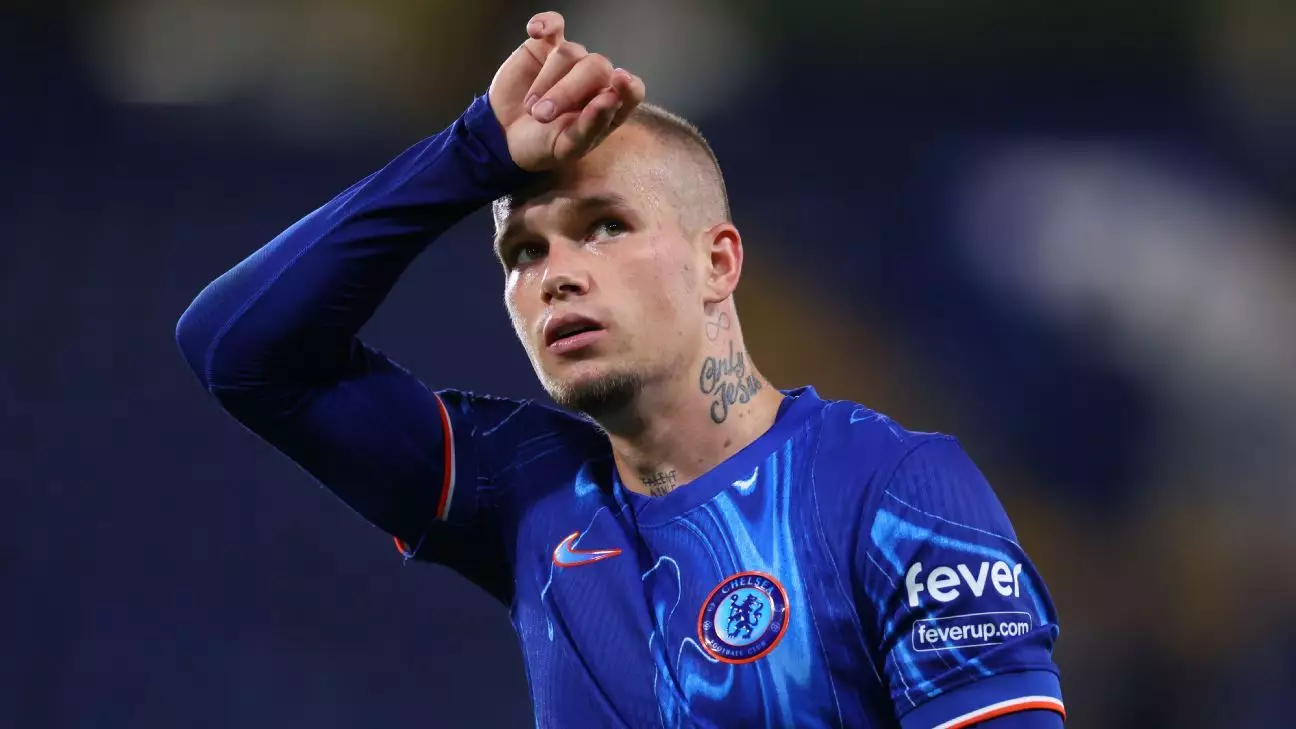In the world of professional sports, few things can disrupt a player’s career quite like a doping scandal. The recent case of Chelsea’s Mykhailo Mudryk has put the Ukrainian winger in the crosshairs of controversy. Following a positive drugs test, both Mudryk and his club expressed their shock at the incident, firmly asserting their belief in his innocence. As headlines circulate, one questions whether this situation will prove to be a temporary setback or a significant hurdle in Mudryk’s burgeoning career at Chelsea.
The Club’s Response: A Show of Faith
Enzo Maresca, Chelsea’s head coach, emphasized the club’s unwavering support for Mudryk at a press conference. He articulated a strong sense of trust in the player, asserting that it is essential for the organization to stand by Mudryk during this trying time. The coach acknowledged the emotional turmoil and sadness felt by the entire squad and reassured that the club is committed to assisting Mudryk in whatever manner necessary. The terminology used by Maresca suggests a careful balance between support and a need for transparency, as they navigate the complexities of the situation.
This affectionate sentiment is critical given the high stakes involved. If Mudryk’s “B” sample corroborates the initial findings, he may face severe repercussions, including a potential four-year ban in adherence to FIFA regulations. Thus, while the team’s immediate focus is on backing their player, the long-term ramifications loom large.
Mudryk’s predicament sheds light on a prevalent issue within the realm of sports: the delicate relationship between athletes and doping regulations. With numerous players facing similar situations, the overarching question becomes: what systemic changes are necessary to address these concerns effectively? Maresca’s remark that “it will happen again for different players” hints at a recurring cycle of doping scandals that begs for structural intervention rather than ad hoc responses.
Mudryk’s arrival at Chelsea was marked by immense expectation, as the 23-year-old was among the most coveted talents in Europe, fetching a transfer fee that might climb to £88 million. His positive drug test brings an unfortunate twist to his nascent journey at Chelsea, where he has only managed to start 26 Premier League matches and is yet to establish himself as a first-team regular. In examining Mudryk’s future, it’s crucial to consider the impact of this incident on his career trajectory and the club’s expectations of him.
One of the less visible but equally crucial aspects of sports is the psychological toll that such events can have on players. The support extended by Chelsea is commendable, yet one cannot ignore the mental strain that comes with allegations of doping. The ability for athletes to maintain their concentration and performance levels amid scrutiny can significantly impact their results on the field. Mudryk, already facing the challenges of settling in a new league, may find this latest controversy to be a considerable distraction.
Psychological support, therefore, should not only be about moral backing; it must encompass mental health resources to help players like Mudryk cope with the potential fallout. As Maresca mentions, the importance of trust within the team can create a favorable environment. This, in turn, can aid in ensuring that Mudryk remains focused and returns to the game stronger than before, should he ultimately clear his name.
As Chelsea prepares to face Shamrock Rovers in the UEFA Conference League and subsequent Premier League matches against Everton, Fulham, and Ipswich Town, the club faces a critical juncture. The decisions made during this period will not only affect Mudryk’s future but could also shape the overall squad strategy moving into the January transfer window, marking an essential phase in their campaign.
While the discourse surrounding doping tests often shifts responsibility onto players, this incident reveals a network of support that can either uplift an athlete or leave them isolated. As the club navigates this turmoil, both Mudryk and Chelsea must grapple with the implications of the unfolding situation and strive to emerge from it together.
The Mudryk case highlights the intricate blend of ethics, support, and the realities of modern professional sports, setting an essential precedent moving forward. How Chelsea, Mudryk, and the wider football community respond to this challenge could ultimately reshape perceptions, policies, and the integrity of the sport in the years to come.

